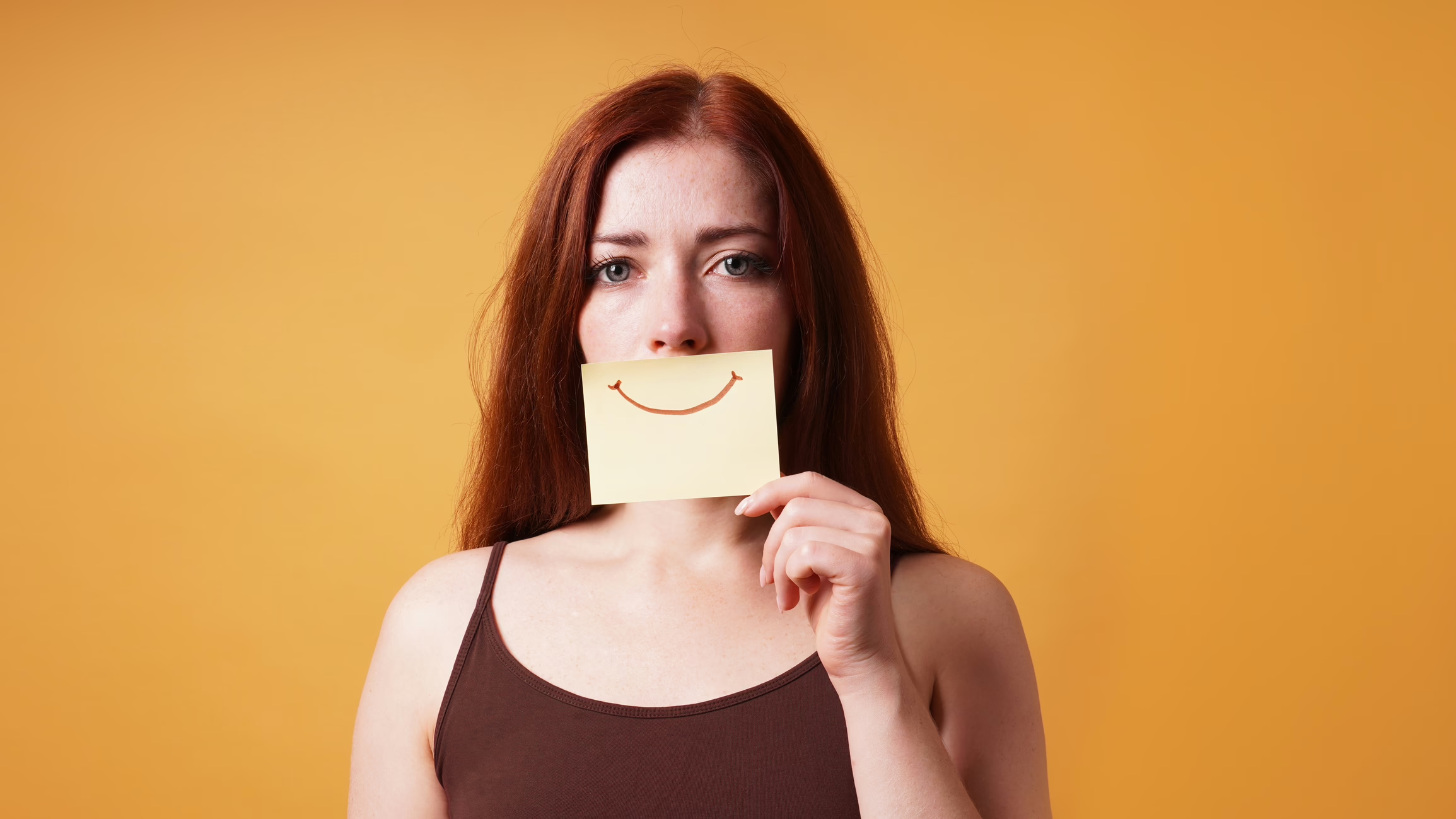Smiling Through the Pain: Understanding Smiling Depression
When we think of depression, we often imagine someone who is visibly sad, withdrawn or struggling to get through each day. However, depression can manifest in much more subtle ways. Not everyone with depression shows their pain on the outside. In fact, many individuals with depression wear a “mask” of happiness and smile through their struggles, a phenomenon known as smiling depression.
You may wonder, “Do people with depression laugh?” or “Do people with depression smile?” The answer is yes—people with depression can indeed laugh and smile, but it often doesn’t reflect their true emotional state.
What Is Smiling Depression?
Smiling depression refers to a form of depression in which individuals conceal their emotional pain behind a smile or other outward expressions of happiness. These individuals may appear well-adjusted, social and even cheerful to others, but in reality, they are battling feelings of sadness, worthlessness and hopelessness. It is a form of high-functioning depression, where people continue to perform their daily responsibilities and maintain relationships, all while suffering from an overwhelming internal struggle.
Unlike more visibly distressed forms of depression, smiling depression can often go unnoticed by others because the person seems to be doing well on the surface. They might attend social events, go to work or even maintain relationships, all while secretly struggling with debilitating mental health challenges. For many, the ability to smile or laugh despite their depression becomes a coping mechanism, a way to avoid judgment or pity from others.
Do People with Depression Laugh?
Many people with depression laugh, but the laughter may not necessarily indicate happiness. People with smiling depression might laugh during social interactions or in response to jokes, but it doesn’t mean they are genuinely enjoying themselves. The laughter may be forced, mechanical or used as a way to fit in and appear “normal” in social situations.
In fact, individuals with depression often laugh because they want to avoid drawing attention to their true feelings. They might feel compelled to laugh to prevent others from suspecting that something is wrong. Laughing in these moments can feel like a performance, not an expression of true joy. It can be a way of hiding their emotional pain, suppressing feelings of sadness and creating a facade of normalcy.
Sometimes, people with depression laugh at dark or self-deprecating humor—jokes that touch on difficult subjects like sadness or despair. This type of humor can feel comforting for someone with depression because it allows them to acknowledge their feelings in a less direct way. While this laughter may seem genuine on the surface, it can be a sign that they are struggling to cope with deeper, more difficult emotions.
Do People with Depression Smile?
Similar to laughter, people with depression do smile. However, the smiles of those with smiling depression are often different from those of individuals without depression. These smiles might be polite or automatic, rather than being expressions of true joy or happiness. The smile may be an attempt to hide inner turmoil, a way to maintain appearances, or a response to social pressure.
For some individuals with smiling depression, smiling becomes a way to deflect attention from their emotional pain. They may feel that if they smile, others will perceive them as fine, and they won’t be subjected to questions about their mental health. In fact, people with smiling depression might go to great lengths to ensure that others don’t realize how deeply they’re struggling.
One common characteristic of smiling depression is the “incongruent smile.” This is when a person smiles, but their eyes do not reflect the joy or warmth typically associated with genuine happiness. Often, there’s a sense of emotional emptiness or a hidden sadness behind the smile. People with smiling depression may also express themselves in ways that appear confident or cheerful, even though they may be internally feeling disconnected or hopeless.
Why Do People with Depression Smile or Laugh?
There are several reasons why someone with depression might smile or laugh despite their inner pain:
- Fear of Judgment: Many individuals with depression fear being judged or seen as weak if they openly show their pain. Smiling and laughing become tools to deflect concern and avoid stigma or misunderstanding.
- Coping Mechanism: Smiling or laughing can be a way of temporarily masking difficult emotions. For some, it offers a brief distraction from feelings of hopelessness or sadness.
- Avoiding Isolation: People with depression may smile or laugh to maintain social connections and avoid isolation. Depression often makes people feel alone, so outwardly appearing happy can help them stay engaged in relationships and avoid being left out.
- Protecting Others: Individuals with depression may worry about burdening their loved ones with their emotional struggles. Smiling and laughing can be a way of protecting others from the heavy emotional load they are carrying.
- Ingrained Habit: Over time, individuals with depression might develop the habit of smiling or laughing as part of their daily routine. It becomes automatic, and they may not even consciously think about it.
The Dangers of Smiling Depression
While smiling depression might seem like a way for someone to function despite their mental health struggles, it can actually be dangerous. The primary danger is that it prevents others from recognizing that the individual is in need of support. When a person with depression conceals their pain, it becomes much harder for friends, family or coworkers to offer help or intervention.
People with smiling depression are at a higher risk of self-harm or suicidal ideation, as their internal struggles remain hidden. Without proper support or treatment, their symptoms can worsen over time. It’s important to understand that even though someone with depression may be laughing or smiling, they may still need professional help to manage their mental health.
How to Support Someone with Smiling Depression
If you suspect someone close to you may be dealing with smiling depression, it’s important to approach the situation with care and empathy. Here are some ways to offer support:
- Encourage Open Communication: Let the person know that you are there for them and that they can talk to you about their struggles without fear of judgment.
- Be Non-Judgmental: Don’t pressure the individual to smile or laugh for your sake. Acknowledge that it’s okay to feel down and that they don’t always need to pretend.
- Suggest Professional Help: Encourage the person to seek therapy or counseling to work through their depression. Treatment options like cognitive-behavioral therapy (CBT) or medication can help individuals with depression better manage their symptoms.
- Be Supportive: Offer consistent emotional support, even if the person seems outwardly fine. Let them know they are not alone in their journey.






